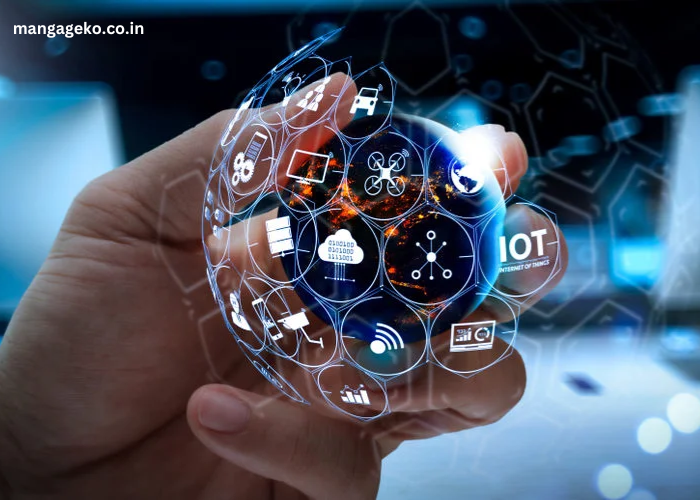In 2025, the pace of technological innovation continues to accelerate, fundamentally changing the way industries operate. From artificial intelligence (AI) and blockchain to the rollout of 5G and the rise of quantum computing, these technologies are driving business transformation across all sectors. Companies that embrace these cutting-edge trends will have a competitive edge in the rapidly evolving marketplace.
This article explores the key technology trends that are shaping industries today and how they are expected to drive the future of business. By understanding these trends, businesses can better prepare for the changes ahead and leverage technology to their advantage.
The digital landscape is evolving at an unprecedented rate, and industries around the world must keep up or risk falling behind. In 2025, technological innovations are not just enhancing existing processes—they are completely transforming the way businesses operate, communicate, and deliver value to customers.
The integration of AI, blockchain, 5G, quantum computing, and other emerging technologies is creating a new paradigm for business operations. These cutting-edge trends are helping companies improve efficiency, enhance customer experiences, and unlock new opportunities for growth.
Key Points:
- AI is automating and personalizing business processes, leading to more efficient operations.
- Blockchain is providing transparency, security, and trust in various industries.
- 5G is revolutionizing connectivity, enabling faster and more reliable communication.
How Is AI Revolutionizing Industries?
Artificial intelligence is one of the most influential technological trends in 2025, and its applications are far-reaching across a wide range of industries. AI is not only improving operational efficiency but also transforming customer experiences, driving innovation, and creating new business opportunities.
AI in Automation and Personalization
AI-powered automation is streamlining repetitive tasks, freeing up employees to focus on higher-value work. In customer service, AI-driven chatbots and virtual assistants are providing instant support, improving response times, and enhancing customer satisfaction.
AI is also enabling highly personalized experiences. In retail, for instance, AI analyzes consumer behavior to offer tailored recommendations, improving the chances of successful sales. Similarly, in healthcare, AI systems analyze patient data to provide customized treatment plans that optimize health outcomes.
Real-World Example
In the banking sector, AI is being used to detect fraudulent activities by analyzing transaction patterns and identifying suspicious behavior in real-time. This improves security and reduces financial risks.
Reminder: AI-powered automation and personalization increase efficiency and enhance customer satisfaction.
What Role Does Blockchain Play in Shaping Industries?
Blockchain technology is becoming a core driver of change in industries such as finance, supply chain, healthcare, and beyond. Originally popularized by cryptocurrencies like Bitcoin, blockchain’s decentralized, immutable ledger system offers an unprecedented level of transparency and security.
Blockchain in Supply Chain Management
One of the most significant uses of blockchain is in supply chain management. By recording every transaction in an unchangeable ledger, blockchain ensures complete transparency, allowing businesses to track products from the manufacturer to the consumer.
In the pharmaceutical industry, blockchain is helping to combat counterfeit drugs by tracking every step of a drug’s journey from production to distribution. This ensures that products meet safety standards and are not tampered with.
Real-World Example
Walmart has partnered with IBM to use blockchain to track food products from farm to table. This not only improves food safety but also enables rapid responses in case of contamination, ultimately reducing food waste and enhancing consumer trust.
Comparison Table: Blockchain vs Traditional Database
| Feature | Blockchain | Traditional Database |
|---|---|---|
| Transparency | Immutable ledger, fully transparent | Centralized, limited transparency |
| Security | Highly secure, tamper-proof | Vulnerable to data breaches |
| Efficiency | Real-time updates, faster transactions | Slower data processing |
Reminder: Blockchain ensures secure, transparent transactions across industries.
How Is 5G Transforming Business Operations?
The arrival of 5G technology is set to revolutionize business operations, especially in areas that require real-time communication, large data transfers, and high-speed internet connections. The ultra-fast speeds and low latency of 5G will enable businesses to improve operations, increase customer engagement, and create new opportunities for innovation.
5G in Smart Cities and IoT
5G is expected to play a crucial role in the development of smart cities and the expansion of the Internet of Things (IoT). With its ability to connect millions of devices in real-time, 5G will facilitate the seamless exchange of data, powering innovations like autonomous vehicles, connected homes, and smart infrastructure.
For instance, 5G will enable autonomous vehicles to communicate with each other and with traffic infrastructure, improving road safety and efficiency. Similarly, smart homes will use 5G to connect various devices, from lighting and security systems to thermostats and appliances, enhancing convenience and energy efficiency.
Real-World Example
In healthcare, 5G will allow doctors to perform remote surgeries using robotic systems, with ultra-low latency ensuring precise movements and real-time feedback. This will make healthcare more accessible, particularly in rural or underserved areas.
Reminder: 5G will unlock new levels of connectivity, leading to smarter cities and more efficient businesses.
How Will Quantum Computing Impact Industries?
Quantum computing is poised to be one of the most revolutionary technologies of the next decade. Unlike classical computers that process data in binary (0s and 1s), quantum computers leverage quantum bits (qubits) that can exist in multiple states simultaneously, enabling them to solve complex problems at an exponentially faster rate.
Quantum Computing in Pharmaceuticals and Finance
In the pharmaceutical industry, quantum computing has the potential to accelerate drug discovery by simulating complex molecular interactions at speeds that classical computers cannot achieve. This could lead to the development of new treatments for diseases that are currently difficult to treat.
In finance, quantum computing could improve risk management and optimize investment strategies by analyzing vast datasets in real-time. This will allow companies to make more informed decisions and maximize returns.
Real-World Example
IBM and Google are already working on quantum computers that can solve problems related to material science, cryptography, and logistics. These advancements will provide businesses with the ability to perform tasks that were once impossible.
Conclusion
The future of industries in 2025 will be shaped by cutting-edge technologies that offer new ways of solving problems, enhancing efficiency, and driving growth. From AI and blockchain to 5G and quantum computing, these innovations are transforming business models and creating opportunities for companies to stay competitive in an increasingly digital world.
To thrive in this new era, businesses must adapt to these emerging technologies and integrate them into their operations. By doing so, they will not only improve their existing processes but also unlock new avenues for innovation and success.
FAQ’s
- What are the main benefits of AI for businesses?
- AI enhances efficiency, automates routine tasks, and offers personalized customer experiences, driving business growth.
- How does blockchain improve supply chain transparency?
- Blockchain ensures the authenticity of products by recording every transaction in an immutable ledger, providing complete transparency.
- What is the significance of 5G in the business world?
- 5G enables faster communication, real-time data transfer, and the development of smart cities and IoT, improving business operations.
- How does quantum computing differ from traditional computing?
- Quantum computing leverages qubits, allowing it to solve complex problems much faster than classical computers.
- What industries will be most affected by quantum computing?
- Quantum computing is expected to revolutionize industries like pharmaceuticals, finance, and logistics by enabling faster problem-solving and data analysis.




